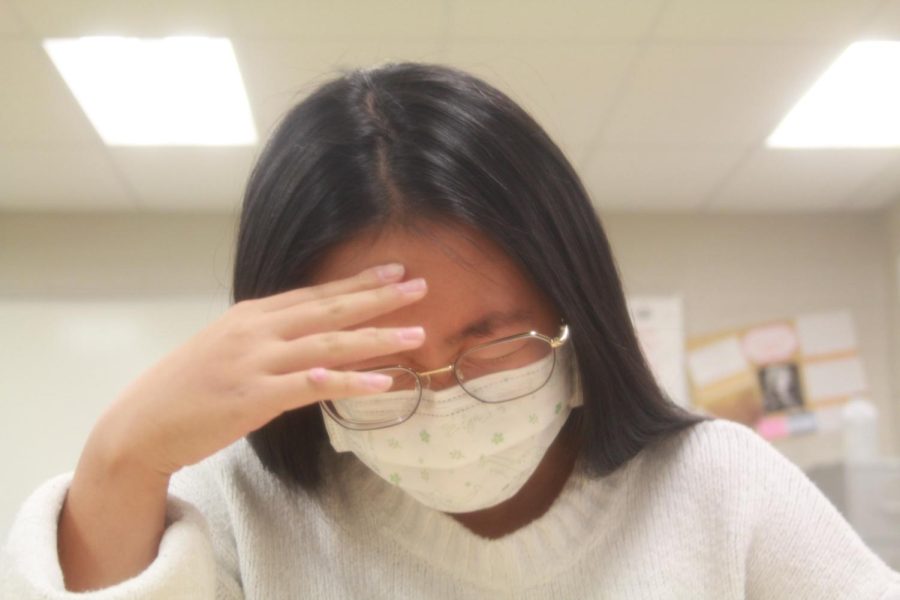Learning virtually, or only virtually learning?
Virtual learning has created lasting negative consequences for student performance
Langley student Zoe Wang is in the midst of taking an AP Calculus AB test on October 19th, 2021. She took the last 1.5 years of math online due to the COVID-19 pandemic.
As students return from over a year of online school, many are beginning to fall behind and have realized a hard truth: virtual learning was simply not enough. Considering the combination of new FCPS grading politics, teacher leniency, and a difficult adjustment period during online school, it’s not a surprise to many. The last time students experienced a full year of school was two years ago. Seniors were still sophomores, juniors walked the halls as freshmen, and underclassmen were still in middle school.
“The jump definitely was disorienting… and I really think I struggled in Calculus this year because of it,” senior Max Moser said.
It’s no secret the workload in high school progressively gets more difficult, and with the rocky transition period to online learning, many students have missed important content they need in later years. Add the fact that most teachers were required to significantly reduce the amount of content covered last year, and current student performance trends in cumulative classes begin to make sense.
“Many of my friends feel like they skipped an entire year,” Marshall High School senior Caitlin Golden said. “Test scores are definitely lower than normal.”
This statistic unfortunately follows suit here at Langley and across the nation. Hit hardest are math and language classes where information continuously builds upon itself every year. As a result, students are scoring lower on quizzes and tests equating to higher dropout rates.
“We are reviewing concepts from previous years using the space and grace days… when we get to something and students don’t understand it,” Langley math teacher and department chair Pamela Douglas said.
Langley teachers are aware and reactively addressing the issue. However, class standards this year will not be lowered. Douglas reiterated she does not want students to fall further behind.
“I think [students] will be moving towards being caught up… but we lost time and study skills. I think in the big picture this is going to take us 3 or 4 years to get back on track,” Douglas said.
Returning to school requires another adjustment period, and hopefully, test scores slowly begin to rise as students feel more at home here in the building.


